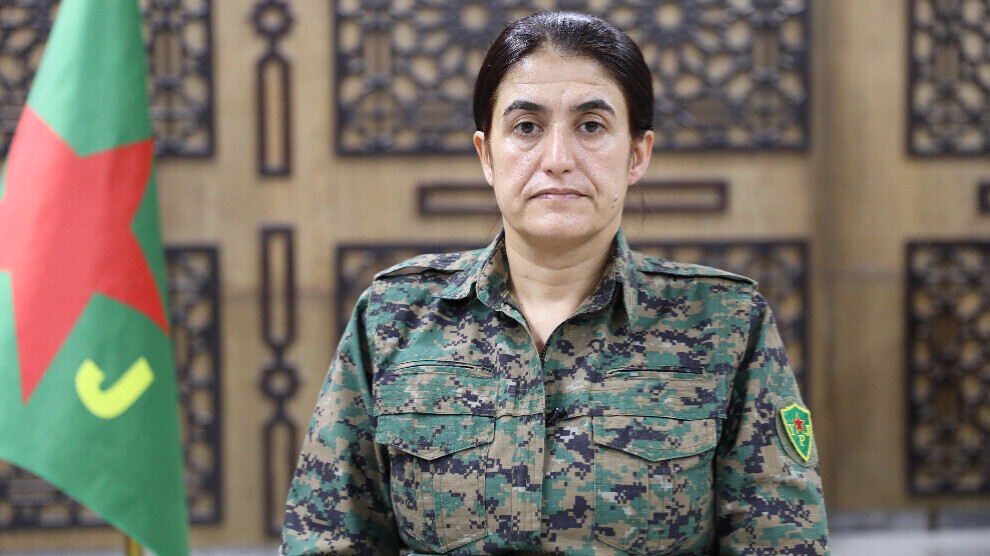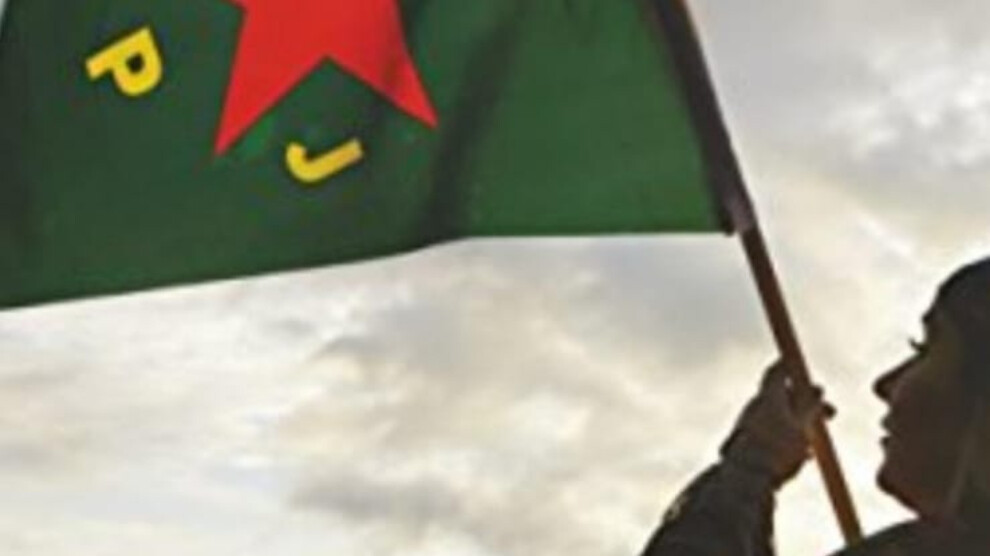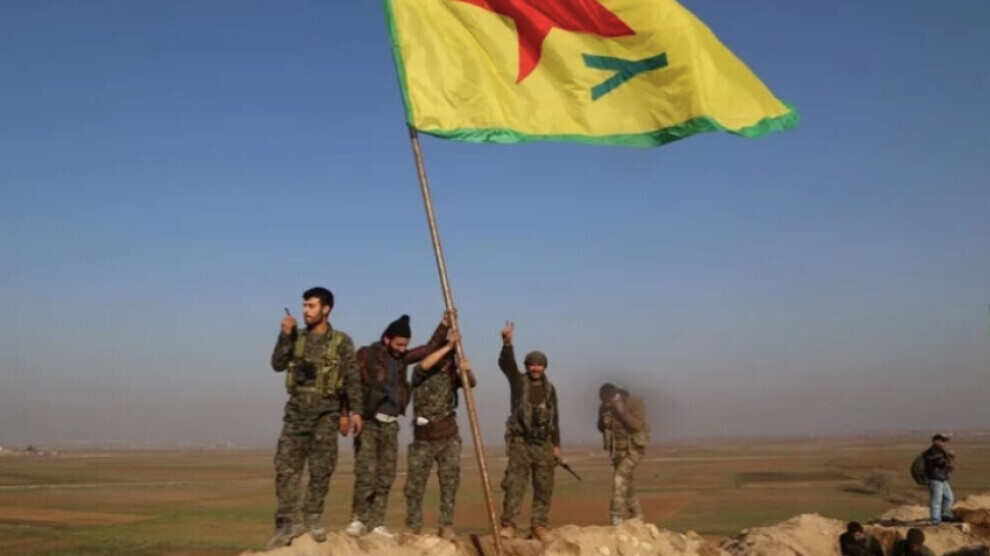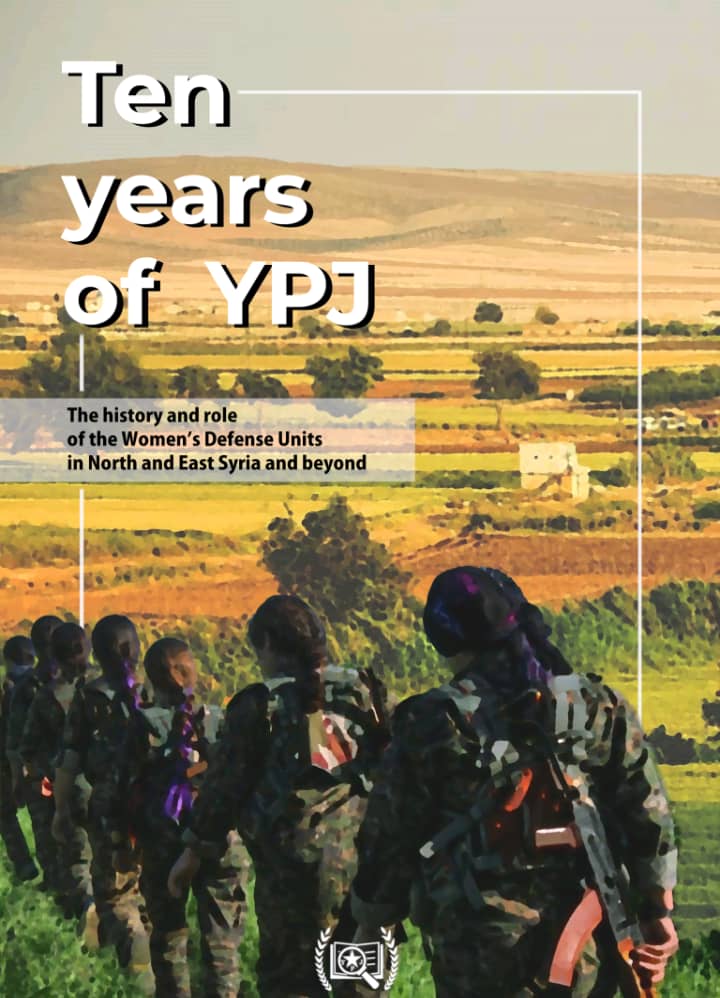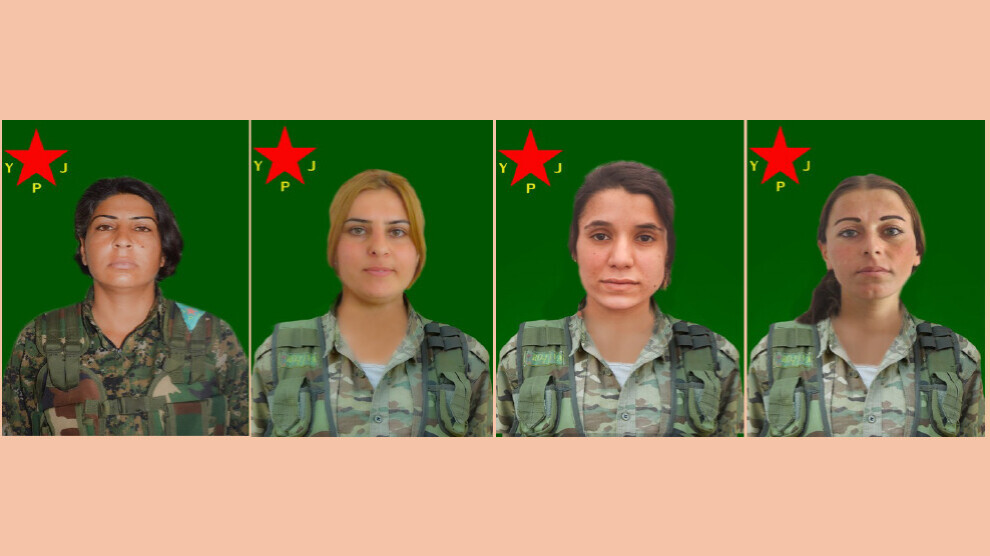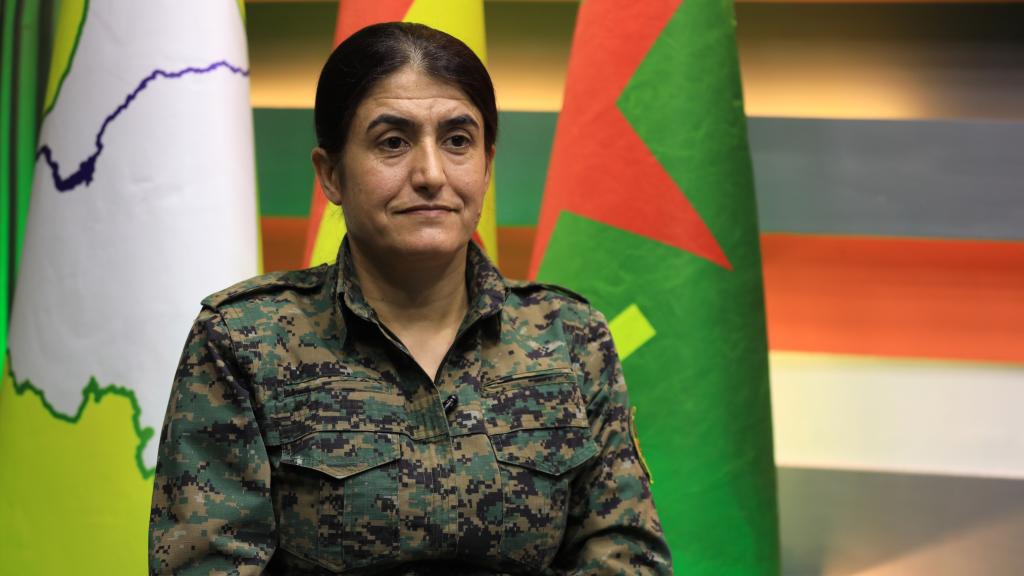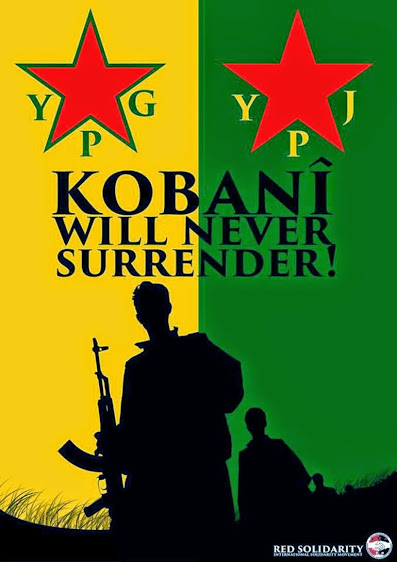Newroz Ehmed from the SDF General Command said:
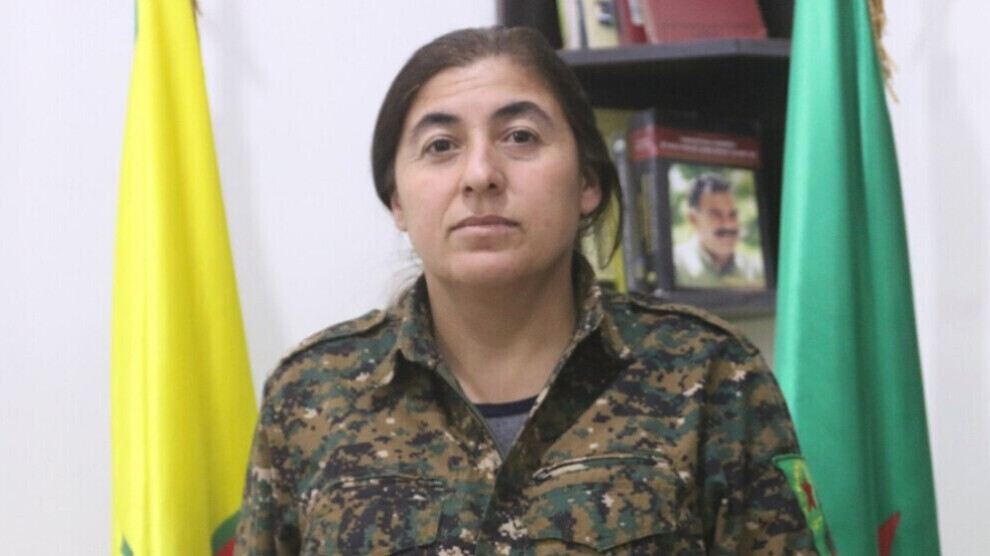
DÎLAN DÎLOK
QAMISHLO
Wednesday, 9 Mar 2022
Newroz Ehmed is a member of the General Command of the Syrian Democratic Forces (SDF). In this ANF interview, she talked about the importance of the Women's Defense Units (YPJ) and the need for self-defense tools. At the same time, she took a look at developments in 2021.
How has the position of women in the military developed over the past year?
2021 was an important year for us in many ways. The fight against ISIS took place primarily with the participation and leadership of the YPJ. There was a joint operation with internal security forces against ISIS cells in Camp Hol, where thousands of family members of ISIS jihadists are located. Our forces from the YPJ were primarily involved in this operation because the majority of those affected were women and children. It was an important operation to counter the organization of ISIS. During the year there were attacks on our forces and the population of the region by the Turkish state and its mercenaries from the areas occupied by them. The YPJ have been on the front line to protect our people and the region and repel these attacks.
Throughout the year, the Turkish state carried out attacks on our territories. Along with these attacks, ISIS became active. To break these attacks, our commander, Sosin Bîrhat, and her friends fought at the forefront and fell as martyrs. In addition to the operations, this year was an important time for the further development of training in technology and tactics. In the last attacks, we saw it clearly: if you don't train and organize yourself well and if you don't master war, then it's hard to resist. For this reason, we have started training for restructuring as a military force and new combat tactics. At the same time, our social self-defense forces have launched a new education system, both to educate and raise awareness among the population and to build and strengthen their own systems. Organizing without society is difficult and cannot succeed, but together we can repel the attacks on our country and win. It was important that this work took place this year.
Restructuring
Military institutions, councils and organizations held meetings to assess both the past year and the new year. There were also closer meetings of the leadership. All of our meetings were conducted from the lowest level of management to the top. Topics such as organization, education and the technology needed to establish a new system were discussed. At the same time, the new system and the training of intelligence and special forces were discussed. Accordingly, we have developed a new system. As a result of our preparations, we repelled the attacks that took place this year. Our military branch participated in it with great morale and passion on the basis of the new knowledge acquired. In the recent attacks on the prison in Hesekê, our commandos and the intelligence and special forces of the SDF, YPG and YPJ were at the forefront. Later, our forces professionally participated in operations against ISIS sleeper cells.
"The New Way to Victory"
As YPJ we did our part in all tasks. In the person of Şehîd Awaz, the resistance of the women became clear once again. Of course, that also made a big impression on people. We followed the path of women like Arîn Mirkan, Barin and Avesta with great determination. The Islamic State wanted to restart its caliphate in Hesekê and implement a new plan against the whole world. It was no small or ordinary attack, and the resistance was no small either. We commemorate all our fallen friends in the person of Heval Awaz. Thanks to them, we were able to present a new victory to our people.
What is the role and importance of women in the Rojava revolution?
The resistance fighters in the Rojava revolution became the common symbol of all peoples living in northern and eastern Syria. Under this roof, people came together and became one. Over the past year, many women have joined the revolution. They became a role model for the whole society. Since women are involved in all levels of life, the prejudice against women has been broken. Women have gained their place in life through their greater participation and organization. For us as YPJ, this resistance and this organizing is a source of morale, which is at the same time a reason to reorganize ourselves even more.
Women are the first to be targeted in all wars. What is the reason for this and how do you think women can protect themselves?
It is not easy to oppose the patriarchal state system that has existed for centuries. That requires a lot of resistance and we have to do our job as best we can. Both ISIS and the occupying Turkish state want to break this resistance. In the person of self-sacrificing revolutionary women, the women who lead society have been targeted. ISIS and the Turkish state are pursuing major goals with this. They wanted to create women who were not present anywhere in life, apart from revolution and politics, but today women are at the forefront. The organized, socially leading woman is always the target of those in power. Sometimes they use rape and assault, sometimes airstrikes and other forms of assault. In many ways, attempts are being made to destroy the women who lead society and thereby destroy society. Last year this happened openly. Every time women stand up for their rights and equality, they are targeted. That's why it's important for women to get organized.
"Create awareness of unity and legitimate self-defense"
Xwebûn [Kurdish for "to be oneself"] is an important term. We have tried to understand this concept by focusing on and discussing why we took up arms in the YPJ. It's not about using weapons, it's about standing up for one's rights, one's identity, for everything that belongs to being human. We try to create this awareness. An attack on a woman is an attack on all women, so this needs to be looked at. With this in mind, women need to organize themselves. When unity, togetherness, is created, we all become stronger. There has to be a confrontation with that, because as the women get stronger, so do the attacks.
That is why there must always be legitimate self-defense forces. If women achieve this awareness, they can create their own self-defence in all areas of life and protect themselves on this basis in every respect. The ways and methods for this are evolving. Women should participate in all areas of life such as education, economy, justice etc. by organizing on this basis. It is important to engage in a sense of unity and self-defense. With the YPJ there is now a distinct female force, there is unity and collectivity, but that is not enough. A greater struggle and resistance is required. As a society, we need to identify with the YPJ.
Some countries have tried to classify the SDF, YPG and YPJ as terrorist organizations. How do you rate this approach?
Women who are themselves and protect themselves can also stand up for and protect society. The YPJ is in a war zone. It is important to strengthen the YPJ in every area of life. As YPJ, we have not attacked any territory or state. We only exercised our right to self-defense. Our approach moves within this framework. We will protect our people and exercise our right to self-defense against any attack on our society or territory. They say we attacked Turkey or other forces, but we didn't attack anyone, we just used our right to self-defense.
So what are our acts of terrorism? Where have we committed them? We just defended our rights. Every day people are displaced, they become targets of attacks, every day women are murdered. Everyone may be silent about these actions, but we are there to stand up for women and for society. We haven't violated a single right.
We call on all people, all freedom and human rights defenders, those who defend and fight for women's freedom; we call on the international powers: Come and investigate what we have done. We are absolutely transparent.
Not only Kurdish women fight in the YPJ, but also women from the Arab and Assyrian populations and other ethnic identities of the region. What do the YPJ promise women?
Women’s demand for freedom, organization and self-defense corresponds to our demand. The YPJ are setting a good example here. This applies to all of Syria, but also to Yemen and Sudan. All women deal with the question of organizing and self-defense and try to find examples of it. The YPJ is a very living, dynamic example in this sense. Indeed, the fact that the experiences of the YPJ are being shared and adopted by other women is a bit what terrifies those in power. If the YPJ were just a region-bound force, no one would have made such an agenda. But the YPJ has become more and more a role model for North and East Syria, Syria, the Middle East, indeed for all of humanity.
"Defending Power of All Women"
The organizing of the YPJ really happened faster than we expected. They were built up quickly and became a very effective force. So there was a need for it. This wave, which started with Kurdish women, has also affected all other women. Various forces joined us and we became what we are today. Women from all over the world come and join the YPJ. The organized self-defense forces are leading to serious changes in our region. They change society. When society changes, the region changes. When the region changes, it has a global impact. But that also places a great deal of responsibility on us. We feel responsibility for all women in the world.
There are heavy attacks. We are able to improve the mechanism of self-defense despite being in an atmosphere of attacks. We know that we have the strength to answer the attacks because behind us stands an even greater force on which to lean, the army of the fallen. The power is the will of the mothers who witnessed the brutal slaughter of their children and had to bury their children with their own hands. The power is the presence of hundreds of daughters of the fallen, the legacy of women who have come from all over the world and joined us at every stage of this struggle. All of this is the source of our strength, our resistance.
On the occasion of World Working Women's Day, we remind all women that it is time for women's freedom. We call for sharing our pains and achievements and fighting together. We can defeat the mentality that kills women, kills love, that forces the colour black on women, and we are ready for it. No one is alone, we are by their side.
